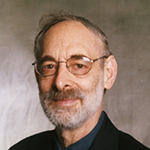In preparation for an upcoming summit on working families, Robert Pollak, PhD, an expert on family economics at Washington University in St. Louis, recently attended a meeting at the White House with other academic leaders and senior administration officials. They gathered to discuss the implications of demographic and other changes for 21st-century workplaces.

Pollak is the Hernreich Distinguished Professor of Economics in Olin Business School and in Arts & Sciences.
Pollak joined 10 other researchers to discuss how the United States can best meet the current needs of families and employers, concentrating on changing patterns of childbearing, cohabitation and marriage and the resulting need for greater workplace flexibility.
“The meeting provided senior administration officials with an overview of current research on changes in American families and work that have taken place over the last 50 years,” Pollak said. “These changes include increases in women’s education, which now surpasses that of men, and increases in women’s work outside the home — women now make up about half of the U.S. workforce. The discussion focused on the ways in which workplaces have adapted or failed to adapt to these changes.”
The meeting was designed to engage in a research-oriented discussion to inform policymakers’ thinking ahead of the White House Summit on Working Families, which will take place June 23. The summit will convene business and labor leaders, economists, policymakers, advocates and citizens to discuss policy solutions that can make a difference in the lives of working families and ensure America’s global competitiveness in the coming decades.
Pollak is co-author of the influential paper “Cohabitation and the Uneven Retreat from Marriage in the U.S., 1950-2010.” He also has published on family decision-making, power couples and household time allocation. His paper “Family Proximity, Childcare, and Women’s Labor Force Attachment” recently was published in the Journal of Urban Economics.